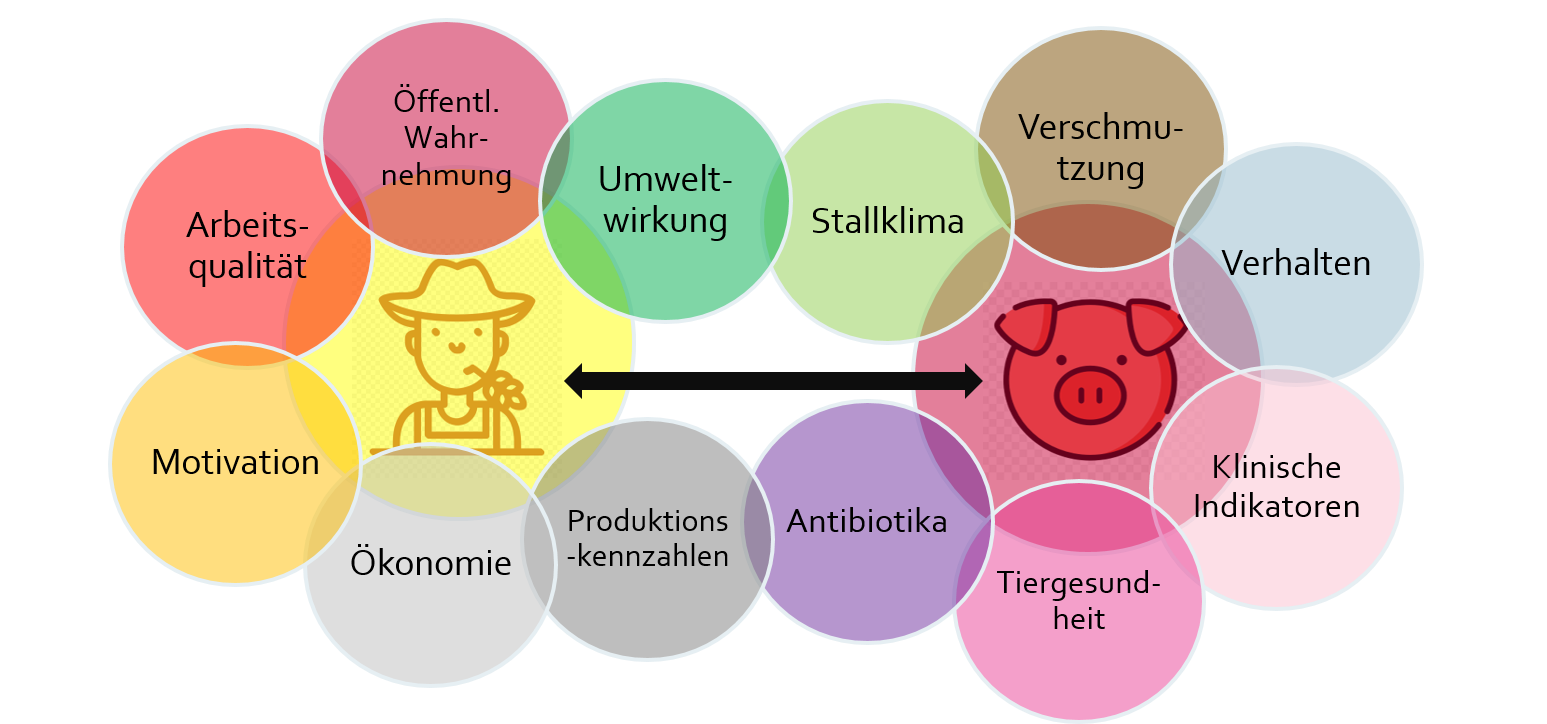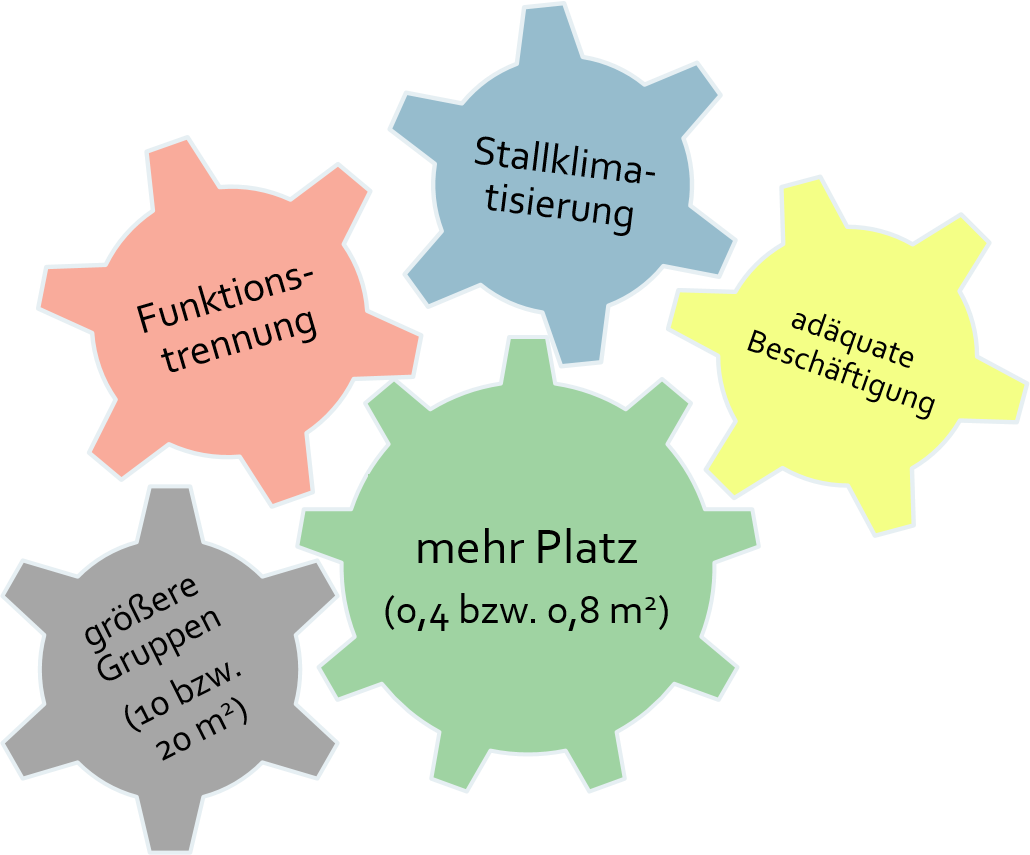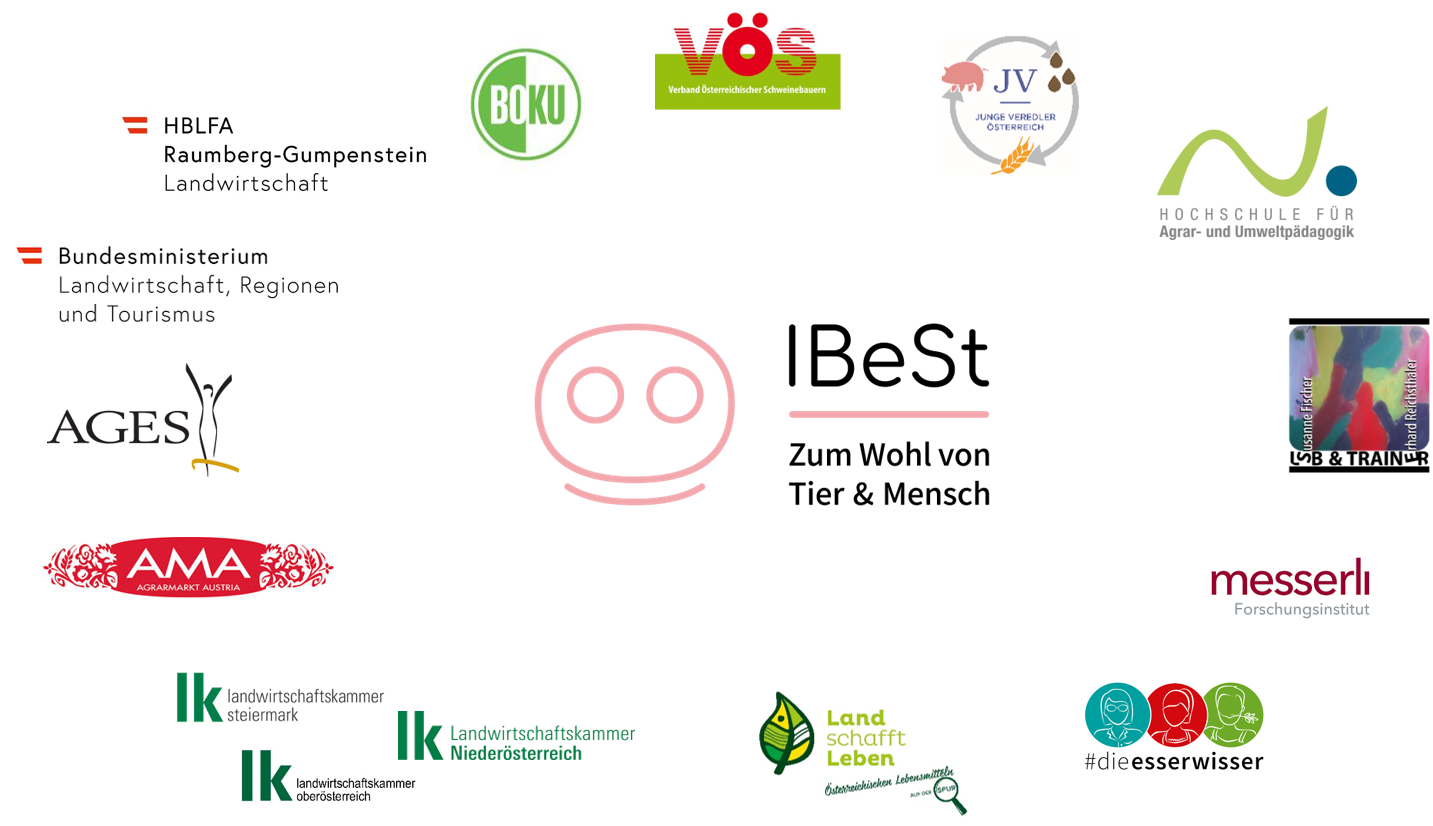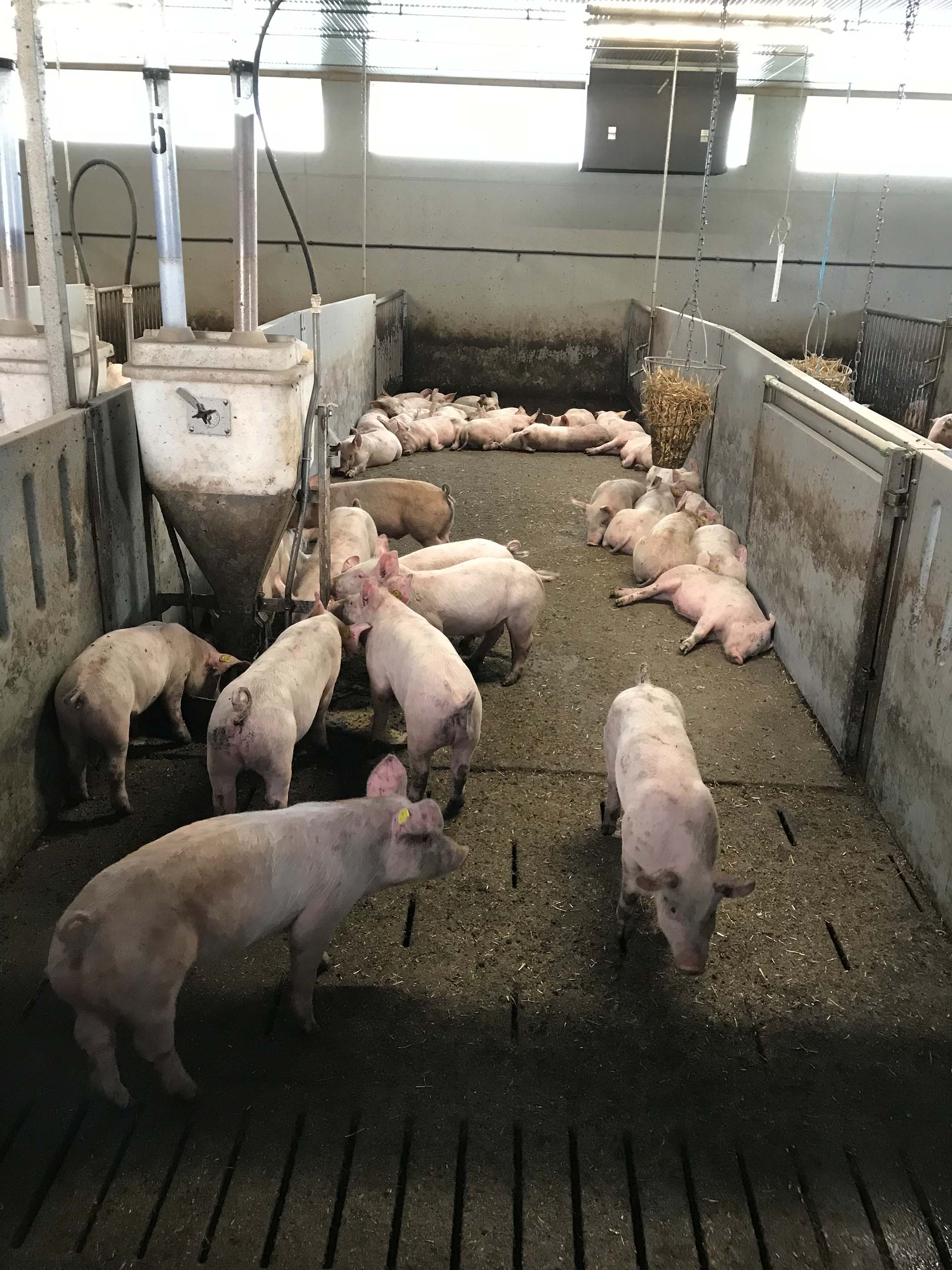Goal of the project
The basic goal is to adapt and improve existing fattening and piglet rearing stables with regard to the following areas:
- Animal welfare
- Identification/satisfaction of farmers with the husbandry system or their own work
- Acceptance by consumers/society
To ensure practical suitability, we work with 18 partner companies (9 breeding and 9 fattening companies). In this way, their expertise and experience can be incorporated into the project results. These partner companies are model companies that are intended to share their experiences and knowledge in the region and beyond even after the project has ended.
Planned indicators

The conversion and adaptation options are discussed individually with each partner company. These can include, among others, the following measures:
- Increased space
- Increased group size
- Establishment of a bay structure or separation of functions
- Differentiated soil conditions
- Improved activity material
- Optimized air conditioning (stable cooling, temperature zone formation)
Austrian pig farmers should be provided with a comprehensive basis for decision-making regarding different conversion and adaptation options for stables, the effects on animal welfare as well as on work processes, the amount of working time and economic effects. The effects on the stable climate and the environmental impacts that arise from the change in soil conditions and the air conditioning measures (stable cooling, zone formation) should also be communicated. The changes in gaseous emissions and the measured emission factors should be used in construction processes (conversions/additions) in the future. In addition, the project's findings can contribute to the further development of the new funding standard in accordance with the “Pact for More Animal Welfare”.
Posture-related key points

Project duration: 2021-2025
Further link: Project homepage
Innovations for existing pigsties: we are walking the path together!
We – farmers and researchers – are looking together for ways to improve existing pig stalls for piglet rearing and fattening and to increase animal welfare.
In this film we show: It is possible! Especially if you are keen to try things out and innovative. Find out more about our work and find practical tips on our website ( short.boku.ac.at/IBeSt ) and our Instagram channel ( @ibest_schwein ). The film was produced by Daniel Gollner .
Partner:

Similar projects
2425: PIGAIR
Minimizing emissions through exhaust air purification systems in pig fattening
2015 - 2018, Zentner Eduard
2466: PigAir II
Odor and ammonia emissions from fattening pig farming using different emission reduction strategies
2020 - 2023, Zentner Eduard







